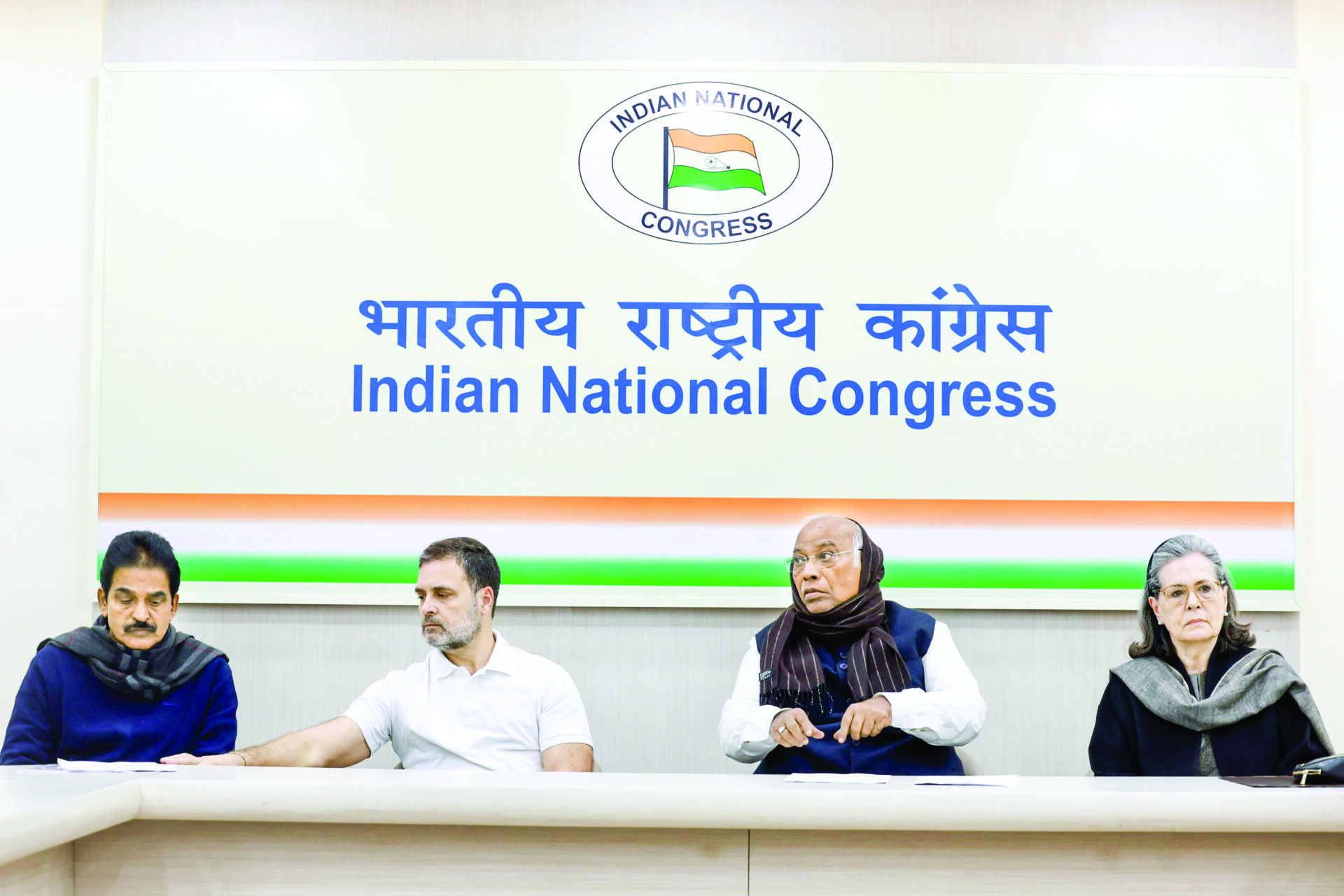Rahul Gandhi must reform Congress and rebuild grassroots to regain relevance amid ineffective leadership and growing calls for change.
Jaipur: The Congress party concludes 2024 in a weakened state, with its challenges showing no signs of abating. The party plans to lean heavily on caste-based politics, focusing on issues like, “Save the Constitution” and invoking Dr. B.R. Ambedkar to rejuvenate its political standing.
However, serious questions remain: Will its allies stand by the party? Will these strategies work?
The party appears increasingly isolated within the Indian National Developmental Inclusive Alliance (I.N.D.I. Alliance), with growing discontent among its partners.
In Delhi, the Aam Aadmi Party (AAP) has publicly opposed Congress and demanded its removal from the alliance. The upcoming Delhi elections are set to feature a three-way contest, leaving Congress’ chances near to nothing.
The biggest challenge for Congress is in Bihar state, where the assembly elections are due in October 2025. These elections are critical for the Congress. But it’s long-time ally, the Rashtriya Janata Dal (RJD), has already started exerting pressure, recalling the 2020 assembly elections results, when on Congress’s insistence on contesting from over 80 seats resulted in a poor performance and cost the RJD a potential victory.
RJD chief Lalu Prasad Yadav is determined to avoid past mistakes.
Congress, on the other hand, faces an uphill battle, having lost significant ground in key states like Uttar Pradesh and Bihar for over a decade, it has no “grassroots” organization in their favour. So, they are still relying on its leadership’s charisma, a strategy that has backfired till now.
Congress continues to depend on “Rahul Gandhi’s image” and, that of his sister Priyanka Gandhi.
Priyanka, after her recent entry into Parliament, is more focused on building her “personal brand” than addressing the party’s structural issues. While her efforts to dominate media narratives were evident during the winter session, there’s little indication of substantive leadership or organizational reforms from her end.
The year 2023 saw elections in nine states, with Congress securing victories only in Karnataka and Telangana. Losses in crucial states like Rajasthan, Madhya Pradesh, and Chhattisgarh have sapped party morale. Despite their limited successes, Congress leaders were quick to credit Priyanka for the victories, ignoring the larger structural weaknesses that remain unaddressed.
The formation of the I.N.D.I. Alliance before the general elections temporarily gave Congress a platform to challenge the Bharatiya Janata Party (BJP). While the Alliance managed to restrict the BJP from securing an outright majority, it couldn’t prevent the BJP-led NDA from retaining power.
With the Congress’ inability to understand the reason for its defeats, and celebrating its tally of 99 Lok Sabha seats as an achievement, the party doubled down on caste and constitutional issues, only to face predictable defeats in Maharashtra and Haryana.
The BJP, learning from its mistakes in the Lok Sabha elections, sharpened its Hindutva narrative and deployed the Rashtriya Swayamsevak Sangh (RSS) to counter Congress’s caste-based politics. The result was a decisive victory for the BJP, which effectively neutralised Congress’ strategies.
By the end of this year, Congress finds itself back in a precarious position, reminiscent of its struggles in 2022 after devastating losses in states like Uttar Pradesh and Punjab. Where questions about the Gandhi family’s leadership persist within the party, though members remain largely silent about it now.
With the Delhi elections just two months away and the Bihar elections too on the horizon, Congress’s reliance on caste politics and Ambedkar’s legacy could create more problems for its regional allies, like the Samajwadi Party (SP) and RJD, which have built their own backward-caste voter bases.
Adding to Congress’s woes, demands within the I.N.D.I. Alliance to elevate Trinamool Congress leader Mamata Banerjee as its leader have intensified, with Sharad Pawar’s Nationalist Congress Party (NCP) and Kejriwal’s AAP expressing support for her.
These developments further isolate Congress, raising questions about its role within the coalition.

